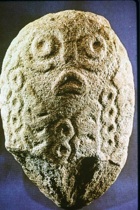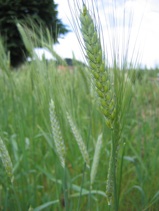EUROEVOL 2010-14
The cultural evolution of Neolithic Europe
The last 25 years have seen the rapid emergence and growth of a new high-profile interdisciplinary field, the evolutionary study of human culture, which has produced novel ways of understanding human cultural and socio- economic behaviour. In particular, it has produced mathematical and computer simulation models derived from evolutionary biology that integrate adaptation with culture and history to give a new understanding of human cultures and societies. The field has seen a great deal of theoretical development and some empirical work, however, there has been no substantive attempt to bring the different sub-fields of cultural evolutionary theory and method together in an integrated fashion and apply them to large-scale case-studies in history or prehistory to address specific questions concerning the links between demographic, economic, social and cultural patterns and processes. The aim of this proposal is to do that for the first time and in doing so to provide the basis for a new account of the role of farming in transforming early European societies, c.6000-2000 calBC.
Overview
Distribution of archaeological sites with ceramic, faunal, botanical and radiocarbon remains.





